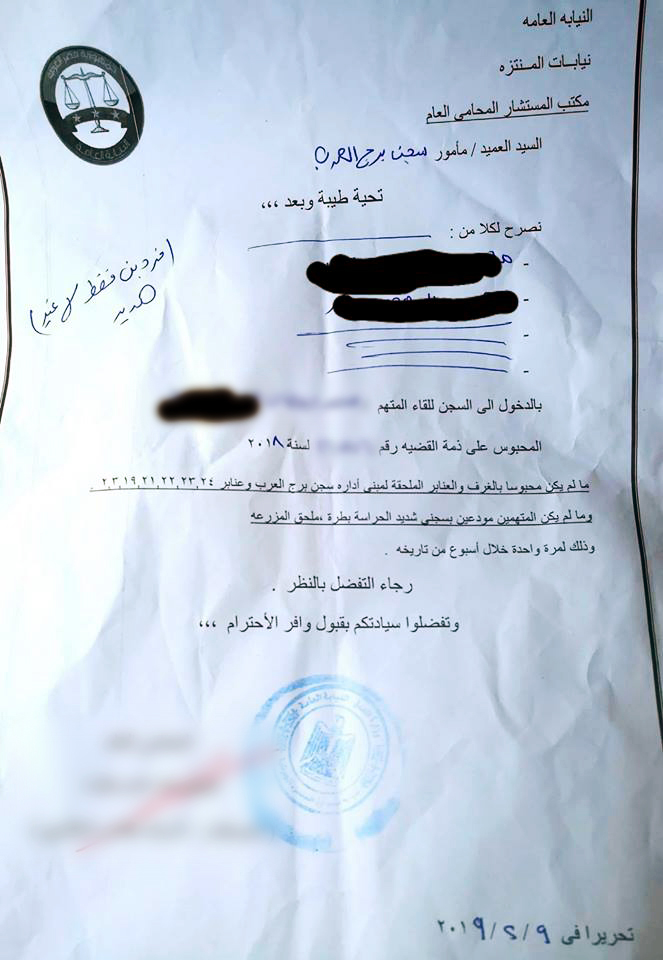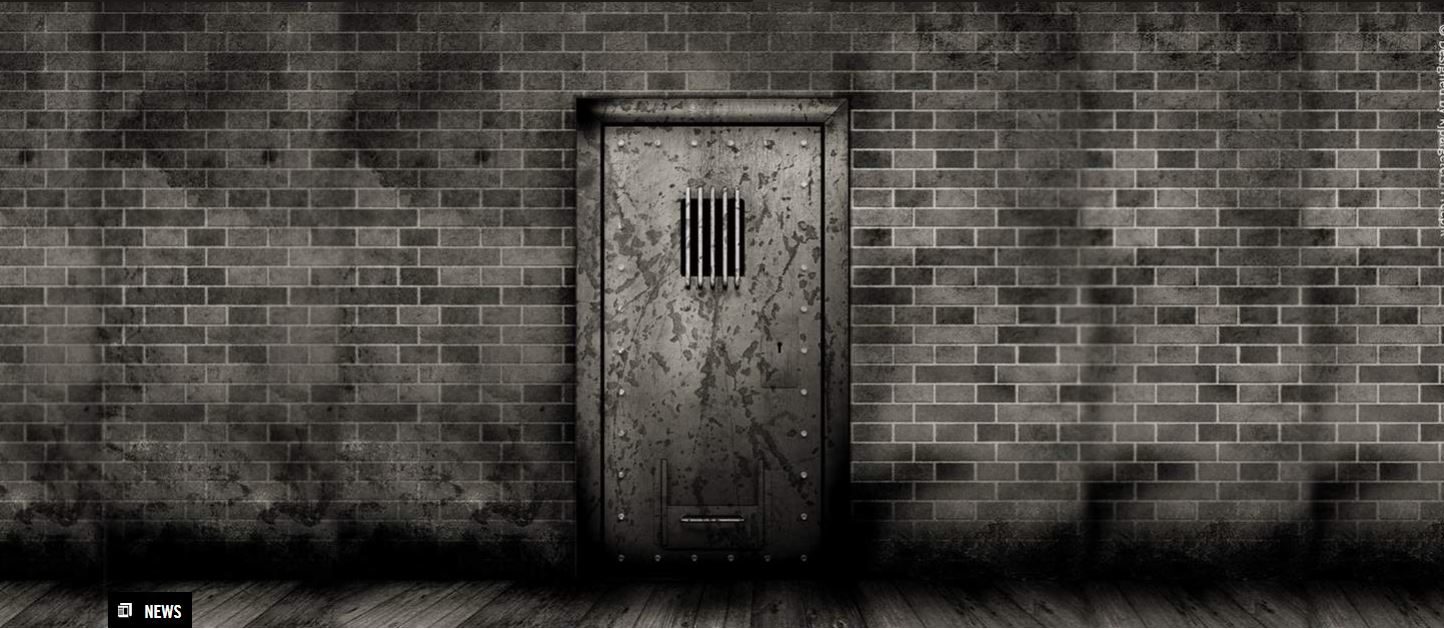Egyptian authorities are flagrantly violating international law by denying family visits to scores of detainees, Amnesty International said today. The organization has examined an official document which confirms there is an open-ended ban on family visits in a number of sections at two major prison complexes in Cairo and Alexandria.
Amnesty International has also recorded at least 61 cases of people who were prevented from receiving family visits for protracted periods – in some cases for up to two years – at Tora prison in Cairo and Borg al-Arab in Alexandria. The total number of detainees barred from receiving family visits at these two prisons is likely to be much higher.
“Egypt’s arbitrary and unlawful restrictions on family visits are depriving scores of detainees of their rights to keep in touch with family members, and often also of the chance to receive medication, food or clothing from their loved ones during their detention,” said Najia Bounaim, Amnesty International’s North Africa Campaigns Director.
“The Egyptian prison authorities must urgently lift the cruel and punitive restrictions on family visits at Tora and Borg al-Arab. Such restrictions violate both Egyptian and international law and have detrimental effects on the psychological wellbeing of detainees and their relatives.”
The Egyptian prison authorities must urgently lift the cruel and punitive restrictions on family visits at Tora and Borg al-Arab
Najia Bounaim, Amnesty International’s North Africa Campaigns Director
The official prison document seen by Amnesty International lists a number of sections of the two prison complexes where detainees are not allowed family visits. These sections are known to house people being held in pre-trial detention and prisoners convicted for expressing their political opinions or otherwise exercising their right to freedom of expression and peaceful assembly. The total number of prisoners affected by the decision is not clear.

Many of the detainees whose cases were recorded by Amnesty International were denied visits for several months at time. Some have not been allowed to see their families for up to two years. At least eight of them were allowed to receive one family visit recently.
Among those who have been denied family visits for years is former President Mohamed Morsi, who has only been allowed three visits since he was first detained more than five years ago. The last visit was in September for 25 minutes only. His son and a number of Muslim Brotherhood leaders and their families have also been denied family visits for years.
More recently, the authorities have also prevented a number of imprisoned activists from receiving family visits. The authorities recently denied family visits to human rights lawyer Mohamed Ramadan, political activist Shady al-Ghazali, former victim of enforced disappearance Islam Khalil and satirist Shady Abu Zeid. All are currently detained for peacefully expressing themselves.
“The profiles of detainees who have been targeted with these measures suggest the authorities’ use of restrictions on prison visits is politically motivated and is intended to deliberately punish political opponents and dissidents,” said Najia Bounaim.
“Egypt has an obligation to treat detainees in its care humanely. There can be no justification for denying detainees contact with their families for prolonged periods of time.”
Egypt has an obligation to treat detainees in its care humanely. There can be no justification for denying detainees contact with their families for prolonged periods of time
Najia Bounaim, North Africa Director of Campaigns
Amnesty International has previously noted that prison authorities frequently deprive prisoners in solitary confinement from family visits for prolonged periods of time and do not grant them any privacy during visits when these do take place.
Even when visits were allowed, former detainees told Amnesty International that these were often cut short. In some cases, the visit lasted only around two minutes. A number of detainees at both Tora and Borg al-Arab prisons also said there are no phone booths to use and the prison authorities do not provide any means for them to make phone calls.
In some cases, in addition to their psychological impact, Amnesty International’s research found that restrictions on family visits had a detrimental impact on detainees’ physical health as many prisoners rely on family members bringing them medication and winter clothes.
Background:
Under international law and standards, including the Mandela Rules setting out minimum standards for the treatment of prisoners, banning family contact is prohibited. Restrictions imposed on the means of contact with family members may only be temporary and as strictly required for the maintenance of security and order.


